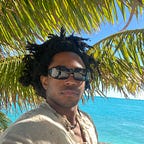Is Somalia a Country?
Or is Somalia a geographical ideal?
“Stupid question,” you may remonstrate, “there’s a shape on the map called Somalia. It even has a capital called Mogadishu.”
To that I would respond, “Well, this is what that shape should look like.”
To understand this ontological doubt about Somalia’s existence, consider what a country is. To slackly paraphrase the inventor of sociology Max Weber, a country is a shape on a map, a territory. And that territory has a single entity, called a government, which has a monopoly on force. That is to say, the government is the most powerful entity within a territory, and it doesn’t share that power with any other entity. The government uses its monopoly on force to create and enforce laws. A country is a territory with a single government. Japan, for instance, is real country because there’s a territory called “Japan” and that territory has only one government which makes laws.
Somalia, paradoxically the most ethnically homogenous country [sic] in Africa, merits a “[sic]” after its name because it does not meet the above definition for a country. While there’s certainly a territory called Somalia, that territory does not have a monopolistic government. The causes need a longer essay as an explanation, but in short, Somalia is suffering from a civil war which began in 1991 and has stalemated into the present. The war has precipitated the creation of rival powerholders, each of which is sufficiently powerful to hold territory but insufficiently powerful to control the entire country.
Mogadishu, the nominal capital of Somalia, lacks full control over most communities, controlling only the red areas in the map above. In the competitive free-for-all which is Somalia, Mogadishu competes with two other government-like actors.
The second competitor is Somaliland, shown in yellow in the above map. Having rejected the current constitution of Somalia, Somaliland functions as an independent, though internationally unrecognized, country with its own capital, Hargeisa. Hargeisa asserts its independence, and it does not recognize the government of Mogadishu. The relationship between Mogadishu and Hargeisa is analogous to the relationship between Beijing and Taipei
The third competitor is Islamic militant groups, particularly Al-Shabaab, shown in gray in the map above. Headquartered in Jilib, Al-Shabaab is on oddity, for on the one hand, it has implemented progressives policies such as a ban on plastic bags and an effective response to COVID-19, but on the other hand, it has implemented regressive policies like mass shootings and bombings targeting both civilians and soldiers. The militants' relationship with Mogadishu is also odd. They’re technically embroiled in a civil war, but they also indirectly cooperate via bribes and negotiations.
Because of the triumvirate of hostile players, Mogadishu controls less than half the country, and even in the controlled areas, governance is decentralized among local communities. Infrastructure cannot be adequately maintained. There is no unified foreign policy. Education quality varies between “decent” and “religious indoctrination”. There are no unified laws to enable a flourishing free market. Nation-wide social services are absent. These are obstacles against Somalia’s functioning as a real country.
You may counterargue that Somalia a unified country, a federation to be precise, and that due to federalism, Mogadishu does not control the entire country, supposedly just as how Washington does not control the federated entity known as the United States of America. This is a mistaken point, a mistaken conception of federalism. In a federation, the federal government possesses a monopoly on force, and Washington certainly does possess a monopoly on force within the US, as shown by that one failed attempt by several states to leave the country and by the inability, especially during the Civil Rights Era, of any state to countermand laws from Washington. Washington can preclude an independent Texas or a KKK state, but Mogadishu has been incapable of precluding either Somaliland or Al-Shabaab.
Why does any of this matter? At the time of this writing, the Somalian Civil War has been ongoing for 31 years. For comparison, the median age in Somalia is only 17. Most Somalis don’t remember when Somalia was a unified country. Mogadishu has devoted significant resources to making the idea of Somalia into a reality, resources which could be better invested in the territory which it does control. In addition, if the people of Somaliand want to be independent, if they don’t want to accept the authority of Mogadishu, they should have the right of self-determination. As for the militant-held territories, while their existence is gravely unfortunate, Mogadishu does not, at the moment, have the ability to dislodge Al-Shabaab. Until Mogadishu strengthens itself, it would be best for the international community to aid Mogadishu in its fight against terrorism, similarly to how the international community has successfully aided Mogadishu in eroding piracy. Acknowledging the reality of a disjointed Somalia, rather than pursuing the ideal of unified Somalia, would be an effective path toward regional stability.
—
Three side notes here. One, because Somalia is unstable, this article will become outdated. Two, if you’re geopolitically savvy, you may have noticed that according to Weber’s definition of a country, Somalia is not unique. Cyprus, Yemen, Afghanistan, Ukraine, Palestine, Syria, et al could also be called non-realized countries, so Somalia is not unique. Three, Weber used the term state rather than country. I used the term country to avoid any confusion with one of the pieces of the United States. If you share only an armchair interest in geopolitics, the terms are mostly synonymous. Otherwise, nation, state, and country have more kaleidoscopey definitions.
—
References:
